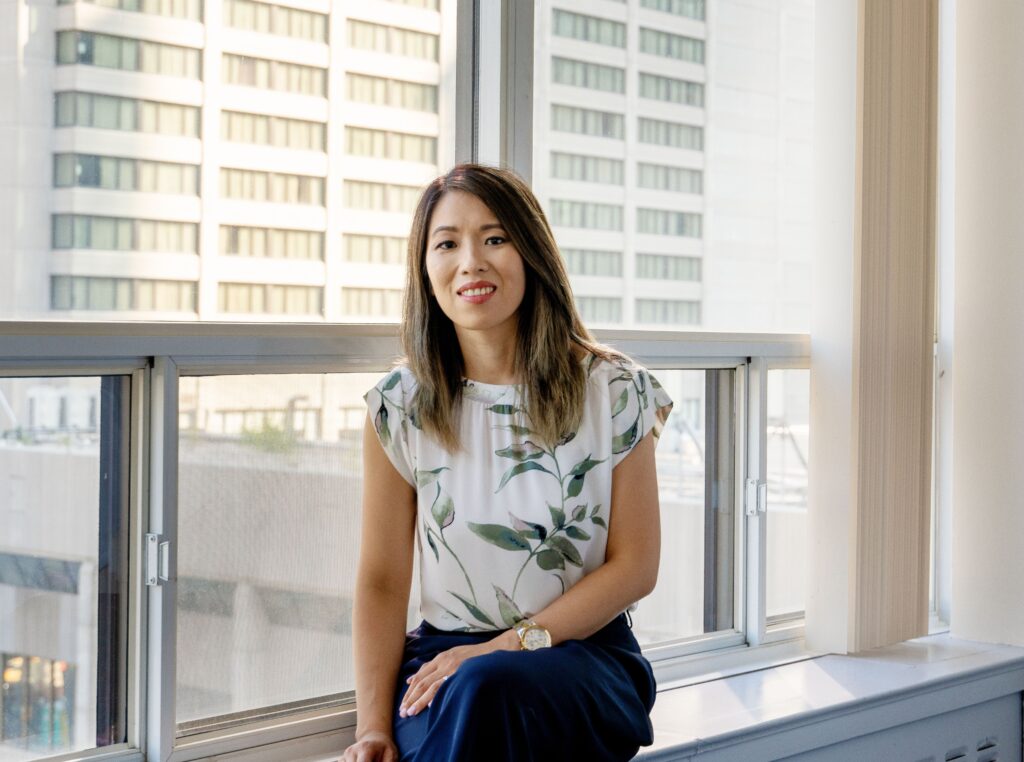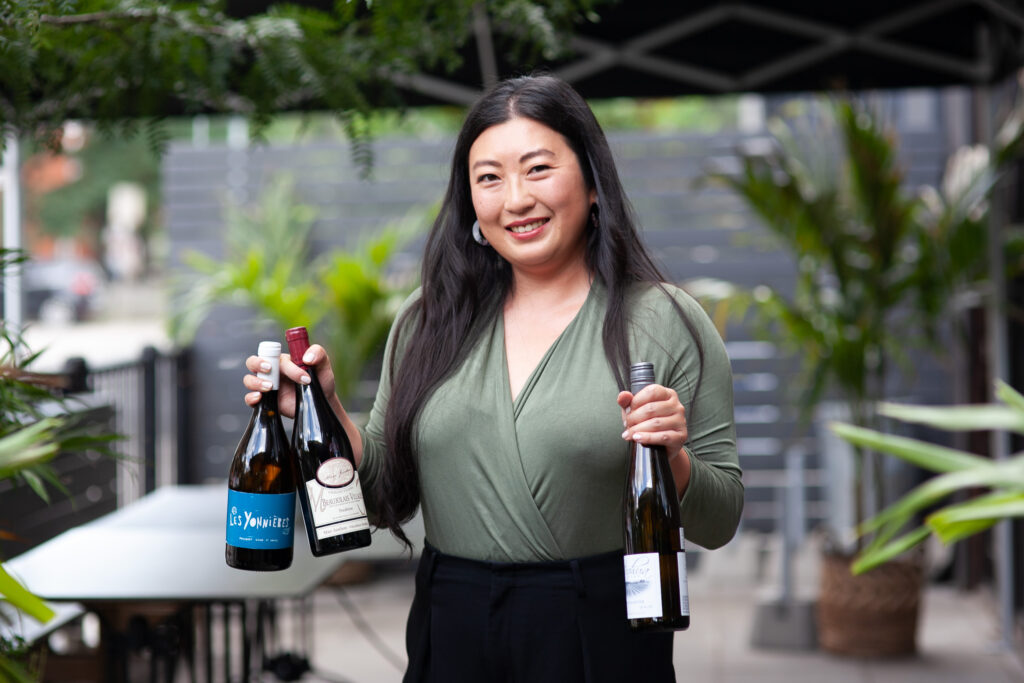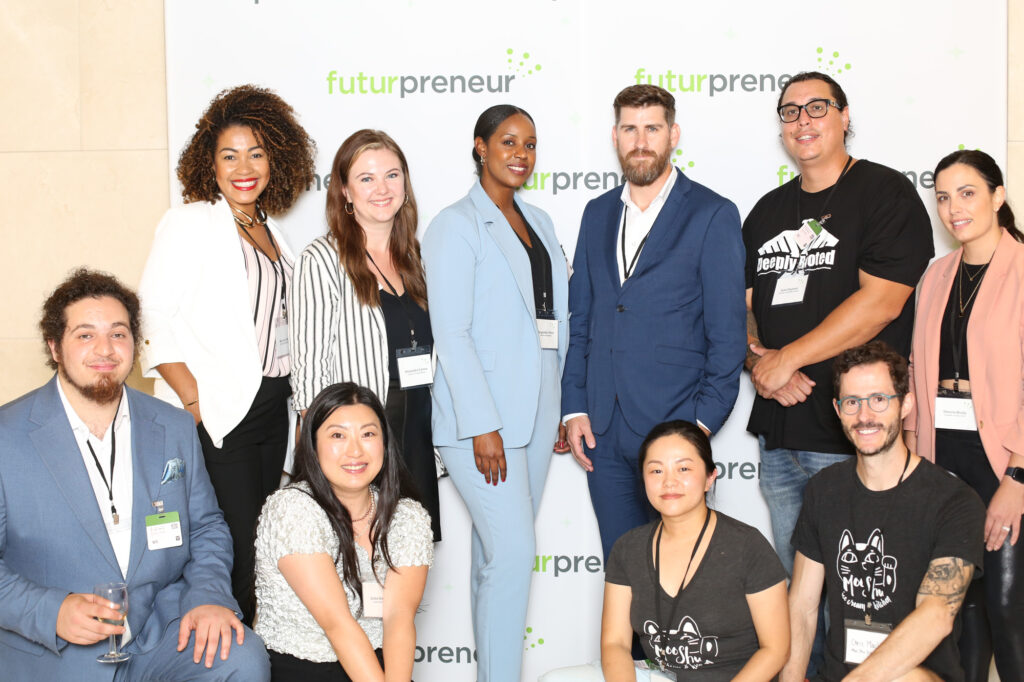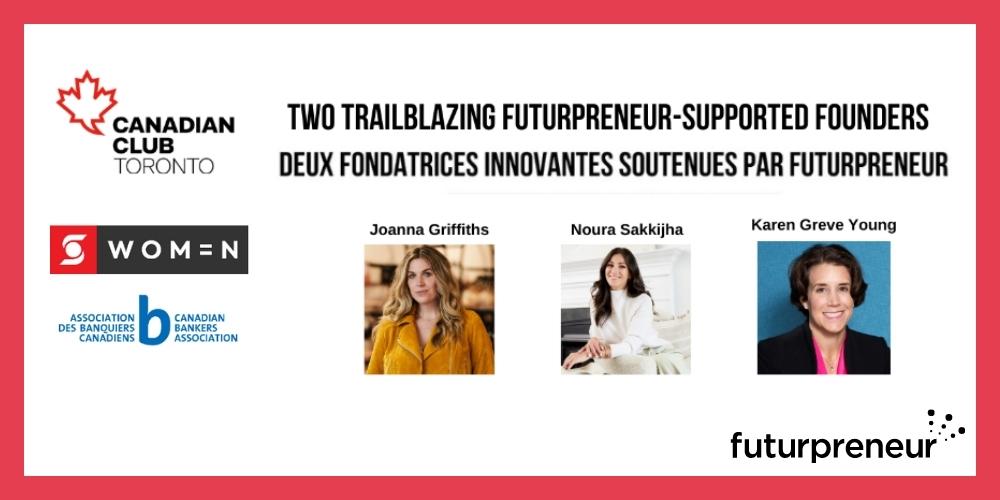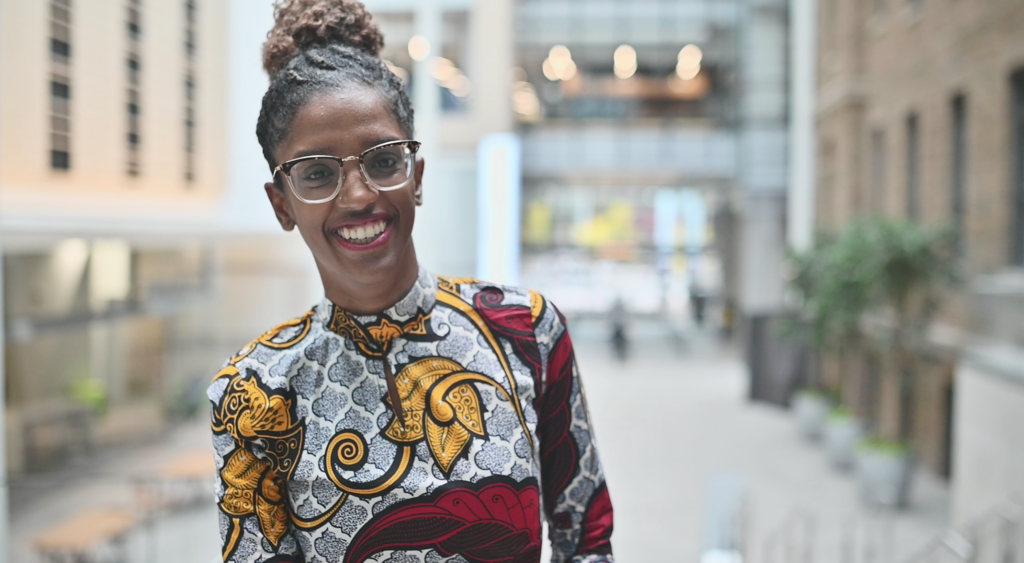
- Entrepreneurship
- Mentoring
Janelle Hinds: Entrepreneur, mentor and champion of diversity in STEM
This year, in honour of Black History Month, Futurpreneur is profiling a series of exceptional Black entrepreneurship leaders in our network—entrepreneurs and mentors who are making a difference in their communities.
Janelle Hinds wears many hats – and the collection is only growing.
Toronto-based Hinds is the founder and executive director of Helping Hands, an app created to help youth find meaningful volunteer and leadership opportunities. She’s an advocate for young women, people of colour and newcomers to find opportunities in Science, Technology, Engineering and Mathematics (STEM), with diversity consulting and public speaking gigs filling her already-busy schedule.
Last summer, Hinds added another title to the list, becoming one of the newest members of the Futurpreneur Board of Directors.
“As an entrepreneur, there’s a lot of support and resources that you need,” Hinds says, citing funding, which can often be difficult for young founders to obtain, to mentorship and guidance in navigating the business world.
Hinds says she jumped at the chance to be part of an organization that focuses on helping young entrepreneurs get their start.
“Futurpreneur is so focused on making sure that it’s the entrepreneur first – like, ‘Does this really help the entrepreneur, yes or no?’ We will make sure that the entrepreneurs coming through our programs are getting the best experience that they can.”
Hinds knows the ins and outs of entrepreneurship firsthand. An engineer by training, she founded several tech-focused initiatives before creating Helping Hands in 2015. The app-based service helps youth find volunteer opportunities, helping them satisfy graduation requirements while providing them with tools to build valuable early-career experience, pick up transferable skills and establish professional networks.
Advocacy and consulting were never part of her game plan – but Hinds found herself taking on that work as she increased her involvement in engineering and entrepreneurship.
“A couple of years ago, I was noticing issues around women in the engineering space. The community in the university I went to wasn’t very entrepreneurially focused, and a lot of other women didn’t want to speak about different issues. I went to Twitter thinking, ‘I just need somewhere I can talk about this.’ “
Others took notice, and Hinds soon began receiving public speaking invites, as well as requests from companies to advise them on their diversity-related practices. Now, she’s regularly invited to speak at non-profits, schools and larger organizations.
“I realized I have a voice, and people are listening – I may as well speak,” she says.
“WHO ARE WE MISSING?”
Much of Hinds’ consulting and advocacy work focuses on the “underestimation” of Black employees and entrepreneurs – a concept she emphasizes over that of “underrepresentation.”
“Black founders aren’t underrepresented. There are a lot – a lot – of small business owners, and if you go into Black communities, you’ll notice just how many people are small business owners,” she explains. “It’s that people don’t assume these business owners know what they’re doing, so they’re not even offered the opportunity to grow their businesses.
“I frame it like this: Is your (organization) underestimating them? Those entrepreneurs exist – you just don’t see them.”
Providing those opportunities is a focus at Helping Hands: In addition to focusing on diversity in hiring internally, the team is currently working on a mental health and allyship guide geared toward Black youth and allies. The guide, based on a similar document Hinds created in the wake of Blackout Tuesday last June, is being created with input from Black youth and will focus on mental health support as well as how friends and allies can support Black peers.
Helping Hands also prioritizes outreach to groups serving newcomers and Black youth to ensure that they have access to the program.
Proactively trying to ensure access in that way, Hinds says, is a step that all too many groups and companies skip when it comes to fostering diversity.
“It’s like any marketing effort – you have to make sure you’re doing the effort to [address the needs] of your audience,” she says.
“I know organizations say, ‘We were looking at doing a youth employment round table, but no youth signed up.’ I asked some questions and I found out they did it in the middle of a school day.” Same goes, she says, for networking or professional events held after hours, when many working parents who don’t have access to childcare can’t make it.
“Again, from hiring to selling your services, it’s not hard to look and think, “Who are we targeting? Where are we marketing? Who are we missing?”
MENTORSHIP MATTERS
“Until you start a business, you do not realize how many little things you have to figure out and learn until the day you decide to start,” Hinds says – another reason why Futurpreneur’s focus on mentorship appealed to her.
At the start of her career, she benefited greatly from a mentor who was also in the social entrepreneurship space – which, at the time, was “little more than a buzzword.”
“There wasn’t a lot of popularity, programming or support around it, so she helped me clarify and understand my business model better and learn how to position myself to be recognized as a valid business and not just a charitable outcome,” she says.
Hinds is also quick to extol the virtues of peer mentoring. “It doesn’t always have to be someone that’s had 20 years in the business – it could be a peer mentor who’s a couple of steps ahead of you and just making sure that you’re not falling down.”
Hinds is part of a chat group of Black women who work in tech and business: “We’re constantly sharing resources with each other, but also asking for advice,” she says.
“Sometimes we’ve had discussions about our hair, or about how our clothing is perceived,” Hinds adds. “We never have to explain ourselves – and a lot of the time, when I’m talking to someone else, I find myself going, ‘Let me give you some context.’ We never have to do the context-building with each other – we just go straight into the problem.”
By staying close with her peer mentorship group, she has also been able to learn about other fields she doesn’t work in – e-commerce, for example – which allows her to pass on that advice to others if they’re in need.
The experience has made her a better mentor – and a better entrepreneur overall, she says.
“I’m faced with a new problem every single day, and I’ve been able to build up the resiliency because I feel confident in figuring out a solution.”
Want to learn more about how Futurpreneur can help launch your business? Click here.

